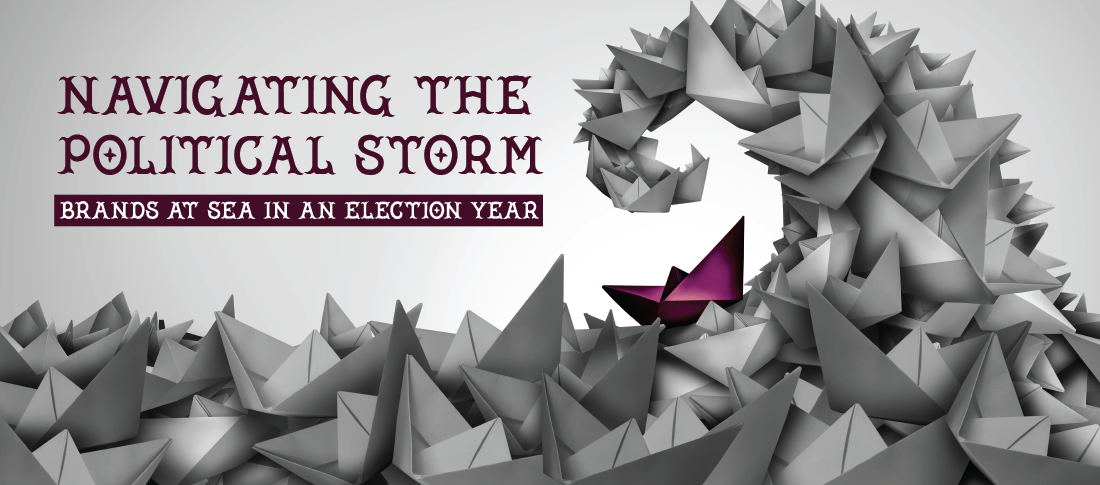
Does Your Brand Need to Adjust its Marketing During a Political Year?
In case you haven’t heard, there’s an election this year, which means just about everything can become political. Even things like the car you drive, the toothpaste you use, and yes, the beer you drink. In these highly politicized times, brands are confronted with the question of whether to adjust their marketing strategies to align with an issue or candidate or steer clear of the political climate entirely.
As consumers, a lot of us will spend the next 8 or so months trying to dodge the onslaught of political campaign ads. But for brands, simply grinding marketing to a halt is rarely an option. But what’s a brand to do when the air is charged and the stakes (and ad prices) are high?
For some brands, leaning into a cause is fundamental to who they are. Take Patagonia. The store down the street from our agency in Atlanta has a huge sign that boasts that the “EARTH IS NOW OUR ONLY SHAREHOLDER.” As one of the OG outdoor apparel brands, Patagonia lives and breathes its commitment to environmental causes, so making those values at the core of its brand is a pretty obvious marketing strategy whether it’s an election year or not. You see this a lot with non-profits – the cause is the brand, so doubling down in an election is a pretty strong bet.
On the other end of the spectrum are brands like Amazon, who embrace issue neutrality. For a market titan like Amazon, it makes sense; they have almost universal target penetration and little direct competition, so there’s no need to differentiate with a specific stance.
Does it make sense for your brand to lean into an issue or to stay on the sidelines? These few questions can help guide the way:
Does my brand have a cause that’s already a part of who we are? For Patagonia, the answer is 100%. For non-profits – like our client One Hundred Miles – their mission is coastal conservation, so of course they need to align their marketing efforts with their cause. But it’s not always clear. Take Subaru and their efforts to help rescue pets. That’s a part of who they are, but is it enough to get someone to buy a Subaru?
Will this cause attract or repel customers – what’s the net math there? Yes, some companies embrace causes because it’s just the right thing to do. But many others embrace causes because they attract more customers. Doing this math and doing it honestly are critical when it comes to issue marketing. Bud Light’s now infamous inclusion effort serves as a cautionary tale of not considering how your advertising may be perceived by different audience segments (especially your core customers).
Are you ready to commit to this issue for the long term? With issue marketing, doing something half-ass can be worse than doing nothing at all. We’ve all heard the term “greenwashing” in the marketing space, and customers are relatively unforgiving when they sense you’re being fake when it comes to supporting a cause. A long-term commitment is a good way to show focus on an issue is genuine, but brands need to be ready to ride out potential fluctuations in public opinion when they choose to show they care over the long haul.
The Bottom Line
Even though we’ve heard a lot of people talking about how they’re dreading the coming deluge of political marketing, as it turns out, a lot of brands aren’t feeling quite as stressed. In a recent Tailfin client survey, a whopping 84% of brands said they plan to stay the course, stay neutral, and keep chugging along. So maybe it’s not quite as big a deal as we’ve all been led to believe.
But for brands that are considering leaning into an issue, it’s a smart bet to think about all potential interpretations, weighing consequences and impacts, considering how people with views that differ from your own may view a particular issue, action, or brand.
Come to think of it, that may be good advice for how we all weather this political season.



No Comments